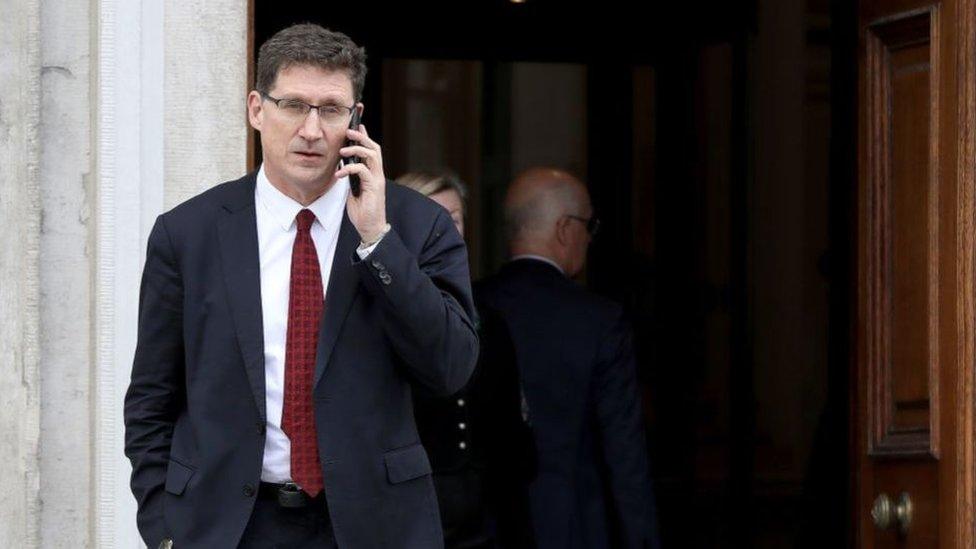Irish election: Green Party divided on coalition government
- Published

Eamon Ryan has led the Greens since 2011
The Green Party’s decision to enter formal talks with Fianna Fáil and Fine Gael makes a new coalition government in the Republic of Ireland more likely, but by no means certain.
More than seven weeks after the general election there is a growing sense during these Covid-19 times, with extraordinary decisions having to be taken, that a new as opposed to a caretaker government is needed.
It is known that the Greens were divided on the issue with the party leader Eamon Ryan, a former cabinet minister, keener on going into government than the party’s deputy leader, Catherine Martin.
His wing of the party believes there is now a great opportunity to implement policies to deal with green issues and global climate change.
Others in the party have serious reservations about whether the Greens will be able to get their way on projects in government at time when budgets will be much tighter because of the economic response to Covid-19.
The major stumbling block to government formation is expected to be the issue of reducing carbon emissions annually by 7%.
Many rural TDs (members of parliament) in both Fianna Fáil and Fine Gael worry about the impact such a development may have on agriculture and the size of the national cow herd.
Those fears have also been articulated by independent TDs who would prefer the two bigger parties rely on them rather than on the 12 Green TDs.
Fianna Fáil and Fine Gael are eight votes short of a majority in the Dáil (Irish Parliament).
If the negotiations do result in a programme for government, the Greens will need a two-thirds majority of members to back the move at a special conference.
Likewise Fianna Fáil and Fine Gael will also need to get the permission of their wider party memberships at special conferences.
But what is clear is that if there is to be a government it will be weeks away and probably the middle of June at the earliest.